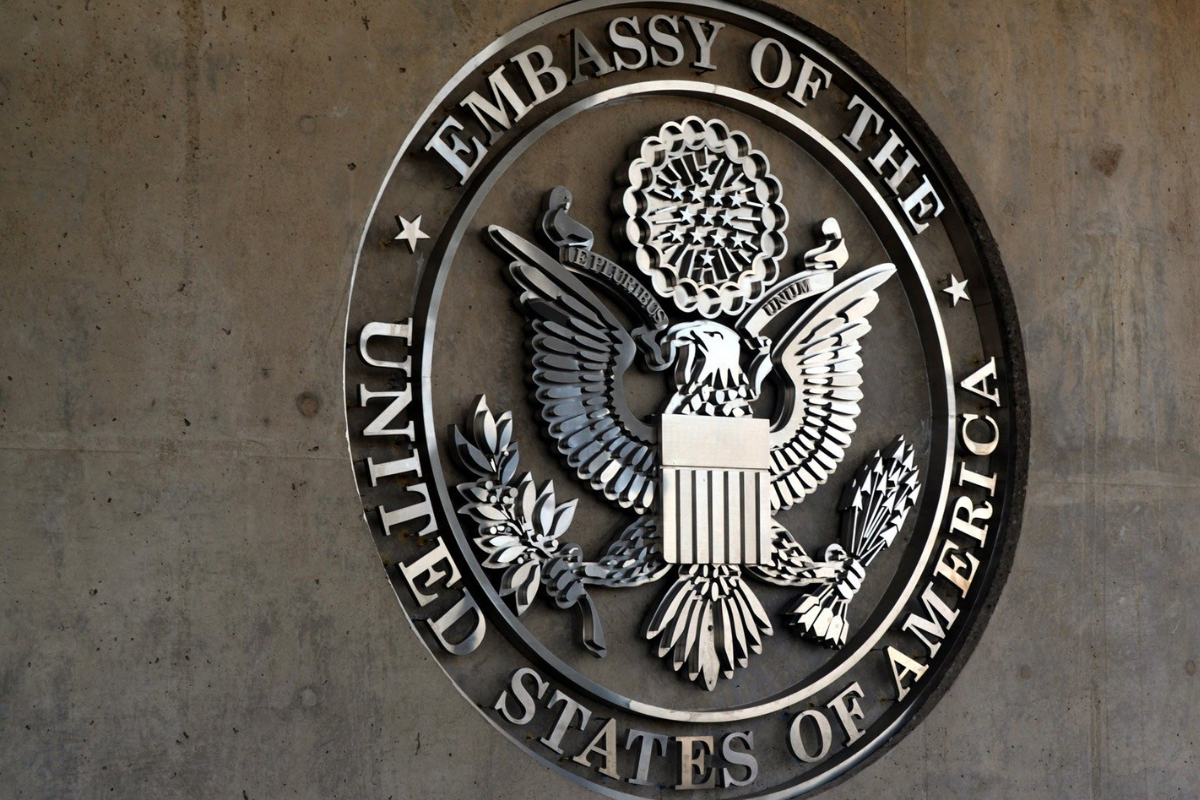Post Disclaimer: This blog reflects the author's personal experience with end-of-life matters and is provided in good faith for informational purposes only. While we aim to provide clear guidance on hard-to-find topics, this content is not legal advice and your use is at your own risk. Estate planning and end-of-life laws vary by location, so please consult your state's laws and seek guidance from a licensed attorney for your specific situation. We make no warranty about the accuracy or completeness of this information, which does not replace professional legal counsel. For more information, please see our full disclaimer.
Losing a loved one is always painful, but it feels even more overwhelming when it happens abroad.
Managing the logistics of transporting a deceased person home, like arranging for the repatriation of remains or understanding the cost of shipping human remains, brings added stress during an already difficult time.
This guide will help you navigate these challenges with clear steps and practical advice, offering support when needed.

First Steps: Immediate Actions
When a loved one passes abroad, it's natural to feel overwhelmed.
The initial steps you take to ensure clarity and compassion guide the process.
Acting calmly and quickly can help you handle the situation effectively.
Contact Essential Authorities
After learning about a death abroad, the first step is notifying the appropriate parties.
Reach out to relevant authorities who can assist with logistics and documentation:
- Embassies or Consulates: Contact the embassy or consulate of the deceased person's home country. They can liaise with local authorities and help arrange to repatriate remains.
- Local Authorities: Notify local police and healthcare providers in the country of death. They issue essential documents, including temporary death records.
- Insurance Companies: Inform the deceased's travel or life insurance provider. Some policies cover emergency flight tickets due to death and repatriation costs.
- Travel Assistance Companies (if applicable): Many plans offer global support for transporting human remains internationally.
These organizations can guide you step-by-step and provide vital resources, smoothing an otherwise daunting process.
Gather Critical Documentation
Accurate and complete documentation is essential in this situation.
Gathering the proper paperwork now will prevent delays.
- Death Certificate: Start by obtaining the death certificate, ideally in both the local language and English. This document is central to arranging shipping of human remains or ashes and insurance claims.
- Identification Documents: Retrieve the deceased's passport and other IDs. These are essential for the consulate and transportation authorities.
- Medical Reports: If the cause of death requires further investigation, medical records may be needed for legal or family purposes.
- Consular Report of Death Abroad: U.S. consulates, for example, issue this document to help the family handle affairs like returning remains and accessing accounts. Learn more about this through the U.S. Consular Services information.
Organize these documents carefully—consider them the glue that holds this process together.
Each step forward often depends on having the proper paperwork at hand.

Understanding Legal Requirements
Navigating the legal terrain after the death of a relative abroad can be daunting.
Laws differ from country to country, and understanding these requirements ensures the process moves smoothly.
Types of Death Certificates
In cases of death abroad, obtaining the appropriate death certificate is critical.
There are generally two types to consider:
- Local Death Certificate: This certificate is issued by the authorities in the country where the death occurred. It may be in the local language and is often necessary for handling burial, cremation, or repatriation.
- Consular Report of Death Abroad (CRDA): Many countries, such as the U.S., issue this document through their consulates. The CRDA is vital for legal proceedings in the deceased's home country, including insurance claims and estate management. Learn more about Consular Reports of Death Abroad.
Being prepared to work with both types ensures smoother processing.
Apostille and Translation Requirements
Some countries may require official documents, like the death certificate, to be authenticated or translated before acceptance.
Here's a quick breakdown:
- Apostille Authentication: An apostille certifies the document's authenticity for use in foreign countries, especially if both nations are members of The Hague Apostille Convention.
- Certified Translation: If the certificate is in a language other than your own, you may need a certified translation. This translation should retain its legal integrity and avoid errors or misinterpretations.
Understanding these steps ahead of time can save significant delays.
Local Laws on Burial and Cremation
Every country adheres to its own set of burial and cremation regulations.
Some may require burial to occur locally if repatriation isn't feasible, while others might restrict cremation outright.
Preferences based on religion and culture can influence these decisions as well.
For instance, countries with stricter customs might require additional permissions or impose waiting periods.
If you need help breaking down these guidelines, embassies or legal professionals in the respective country can assist.
Check death Abroad resources for specific burial and cremation practices.
Time Constraints and Deadlines
Legal deadlines for obtaining certificates, arranging travel, or filing insurance claims often differ.
Many nations require a death certificate to be issued within 24-72 hours of the passing.
Deciding on repatriation or a local burial also comes with its timeframes.
Here's what to keep in mind:
- Transporting Remains: Repatriation typically must begin within days, depending on the condition of the body and preservation methods.
- Document Submissions: Filing critical documentation quickly prevents delays in insurance payouts or estate management.
- Local Funeral Timeframes: Some cultures require burial within 24 hours, adding urgency to the arrangement process.
Planning and acting promptly helps in meeting these deadlines.
Consult these Return of Remains Guidelines for additional insights on time-sensitive processes.

Making Arrangements
Losing a loved one is challenging, and the complexity deepens when the death occurs abroad.
While grieving, making the proper arrangements ensures that the process moves smoothly and respects the deceased's wishes.
Repatriation Considerations
Bringing a loved one home from abroad requires careful planning.
Repatriation, the process of returning a body to the home country, involves several steps that can be both logistical and emotional.
Key repatriation factors include:
- Cost: The expense of repatriation varies by location and service provider. It costs between $6,000 to $12,000, depending on distance, embalming needs, and airline fees. Detailed costs and timelines are reviewed in this comprehensive guide on international mortuary repatriation
- Required Documents: You'll need several documents:
- A certified death certificate, preferably in English.
- A consular mortuary certificate issued by the respective consulate.
- A passport or identification from the deceased.
- Permission and transit documentation for the remains must be obtained from the departing and receiving countries. Learn about crucial documentation and timelines on Travel.gov's Return of Remains guide.
- Timeline: The timeline for repatriation varies. Preparation steps such as embalming and securing permits can take up to 7 days. The actual transportation depends on flight availability, customs processes, and any additional delays due to documentation.
Making arrangements swiftly can reduce costs and emotional stress.
Staying in touch with the embassy, consulate, or a repatriation specialist can streamline the process.
Local Burial or Cremation Options
Sometimes, choosing a local burial or cremation is a practical, meaningful alternative to repatriation.
Both options have pros and cons that should be evaluated based on preference, culture, and budget.
Pros of Local Burial or Cremation:
- Cost-Effective: Avoids the expense of flying a deceased person home, which can significantly reduce financial strain.
- Timely Process: Local arrangements can be completed more quickly, bypassing international transit hurdles.
- Cultural Respect: Sometimes, local customs may demand burial within specific timelines, aligning with religious or legal obligations.
Cons of Local Burial or Cremation:
- Distance from Family: It can be challenging for loved ones who wish to visit the grave or memorial site in the future.
- Limited Personal Involvement: Due to linguistic and logistical barriers, family and friends may have less control over the arrangements.
- Potential Additional Costs: If the remains are cremated locally but the ashes need to be transported internationally, additional expenses, such as the cost of transporting the ashes on a plane, might arise.
Deciding on a local burial or cremation often depends on individual circumstances.
Considering practicalities like budget, immediacy, and emotional factors can help guide the decision-making process.

Financial and Administrative Matters
Dealing with the financial and administrative side of a relative's death abroad is challenging but unavoidable.
Ensuring everything is well-handled will prevent complications in the long run.
Below, we'll cover managing foreign bank accounts, filing insurance claims, and settling debts or estates.
Dealing with Foreign Banks
If your relative had an account in a foreign bank, closing or accessing it may feel like navigating a maze.
Here's how to streamline the process:
- Inform the Bank: First, notify the foreign bank of the account holder's death. Many banks require immediate notification for legal and security reasons.
- Provide Documentation: Banks typically ask for a death certificate, proof of identity, and legal authority (e.g., Letters of Testamentary). Review more on obtaining such documents in our guide on letters of testamentary.
- Understand Foreign Laws: Banking laws differ from one country to another. Some countries may require additional formalities, like legal translations or an apostille stamp.
- Follow Probate Laws: If the account contains significant funds, it may be subject to probate in a foreign country before releasing assets. Local attorneys or legal experts can provide clarity.
Resolving banking matters abroad ensures a smoother transition of assets and removes future liabilities.
Insurance Claims Process
Filing insurance claims after a death abroad can be daunting.
However, following these steps will simplify the process:
- Contact the Insurance Company: Notify the deceased's insurance provider promptly. This could include life, travel, or health insurance.
- Submit Required Documents: Insurance companies will request paperwork like the death certificate, a copy of the policy, proof of relationship, and any medical records outlining the cause of death.
- Understand the Coverage: Some travel insurance policies cover emergency flight tickets due to death or costs like repatriation of remains. Confirm these benefits with the insurer.
- Be Aware of Deadlines: Insurance providers often require claims to be filed within a specific timeframe. Missing deadlines could result in denied claims.
Reviewing your relative's insurance policies and keeping essential documents at hand will make the claim process less stressful.
Handling Estates and Debts
Settling these requires careful management if the deceased owned property or had debts.
Here's an overview:
- Identifying the Estate: Inventory the deceased's assets and liabilities. This could include properties, savings, investments, and debts.
- Settle Debts: Address outstanding loans or credit card debts before distributing any remaining assets. Consult a financial advisor for support.
- Follow Cross-Border Estate Laws: Estates may be governed by local inheritance laws or treaties between the foreign and home countries. Learn more about this in estate planning guides for deaths abroad.
- Distribute the Assets: Once liabilities are cleared, the estate can be divided according to the will or legal succession rules if no will exists.
Unresolved debts or improperly handled estates can lead to complications.
Properly managing these ensures peace of mind for the living relatives and avoids legal troubles.
Addressing financial and administrative details might initially seem overwhelming, but working through them step-by-step ensures compliance and less future strain.

Support Systems
When a loved one passes abroad, logistical and emotional challenges can be overwhelming.
Access to robust support systems, ranging from government resources to professional services, can provide essential relief during this critical time.
Below, we outline various support networks and how they can guide you.
Government Resources
Governments worldwide recognize the difficulty families face following a tragic event abroad.
They provide tools and resources to assist with legal, logistical, and emotional aspects.
Here are some examples:
- U.S.U.S. Department of State: If you're a U.S. citizen, the Department of State offers extensive help, from issuing a Consular Report of Death Abroad (CRDA) to guiding the repatriation process. Learn more on their death Abroad page.
- Embassies and Consulates: Both U.S. and foreign consulates are equipped to assist. They can provide information on local procedures, issue necessary permits, and connect you with local service providers.
- Specialized Services for Veterans: Reporting to the VA can unlock additional resources for families dealing with a veteran's passing. Check out this detailed guide to reporting a veteran's death.
The nearest embassy or consulate is your first point of contact, ensuring you're not navigating foreign systems alone during this vulnerable time.
Professional Services
Hiring professional help can simplify the intricate processes of repatriation, documentation, or local ceremonies.
Here are the types of services widely available:
- Funeral Services Providers: Many funeral homes offer international deceased repatriation services. They coordinate embalming, document preparation, and transportation of the remains. Some specialize in transporting human remains internationally.
- Legal Advisors in Foreign Countries: These professionals can address estate matters or ensure legal compliance with local burial laws.
- Insurance and Travel Assistance Firms: Companies like travel insurance providers may include repatriation coverage or logistical help, which is valuable if policies cover emergency flights for families.
Partnering with professionals reduces confusion and ensures all required steps are completed correctly, especially in a foreign jurisdiction.
Support Groups and Counseling
The grieving process is isolating, more so when dealing with the many layers of a death abroad.
Thankfully, support groups and counseling services can help ease this burden:
- Grief Counseling Services: Local or online therapists specialize in guiding people who face sudden or global loss. This can be pivotal as you process emotions alongside practical duties.
- Community Support Networks: Groups such as expatriate communities often rally together, especially when another member faces hardships like losing a loved one abroad. Utilize platforms like Building Your Grief Support Network to connect with others in similar situations.
- Charitable Organizations: Many charities and nonprofit groups offer counseling or helplines for families dealing with loss. For example, Ataloss.org connects bereaved families with mental health resources tailored to their circumstances.
Seeking emotional support during this time is recommended and essential for long-term healing.
These resources remind you that you don't have to endure this alone, whether through one-on-one therapy or group discussions.
Accessing suitable support systems can smooth your difficulties and keep you focused on what matters: honoring your loved one's life amid challenging times.

Practical Tips and Considerations
When dealing with the aftermath of a death abroad, emotional distress and logistical hurdles often collide.
Beyond official procedures, there are practical ways to make this process manageable.
This section offers actionable advice on navigating language barriers, practicing cultural sensitivity, and prioritizing self-care during emotional strain.
Language Barrier Solutions
Language barriers can significantly complicate arrangements regarding a death abroad.
Communication gaps often lead to delays and misunderstandings during the most critical moments.
Here are practical ways to bridge communication gaps when handling sensitive situations abroad:
- Use translation apps like Google Translate or iTranslate. These tools can offer immediate help for basic phrases or instructions.
- You can request a certified interpreter through local embassies or professional services. These interpreters are especially useful for legal or medical discussions.
- Prepare beforehand by learning the local language's essential terms of death, travel, and logistics.
- Some embassies provide multilingual guides or recommendations for local liaison officers to help with communication gaps.
Think of these solutions as a bridge, allowing you to navigate foreign systems without feeling isolated.
Even something as small as understanding a few phrases in the native language can reduce stress and improve interactions.
Cultural Sensitivity Awareness
Every country approaches death with unique traditions, legalities, and emotional nuances.
Being culturally sensitive is not just polite—ensuring proper arrangements and avoiding offending local customs is crucial.
Here is how to stay culturally aware in such sensitive environments:
- Learn the Customs Quickly: Research the local traditions around death and mourning. This may include rituals, permissible attire, or mourning periods. For instance, countries may require specific burial ceremonies within hours of passing.
- Ask Questions Respectfully: Approach locals, embassy staff, or organizations within the area humbly. A phrase as simple as "Can you help me understand?" goes a long way.
- Consult Professionals: Embassies or funeral homes catering to expatriates can guide you through the cultural do's and don'ts. For example, explore Diversity in Dying: Death Across Cultures to understand global social and religious approaches to death.
- Acknowledge Local Mourning Practices: Participating in or understanding local gatherings, such as wakes or memorial rites, fosters goodwill.
By embracing differences, you can focus on preserving respect and dignity for the deceased while ensuring legal compliance in unfamiliar territories.
Self-Care During the Process
Managing a death abroad is profoundly draining—emotionally, physically, and mentally.
Remembering yourself that taking care of your needs is not self-centered but necessary for tackling responsibilities effectively is essential.
Ways you can prioritize self-care include:
- Establish a Routine: Even when traveling or dealing with time-intensive logistics, stick to basics: regular meals, proper hydration, and rest.
- Seek Emotional Support: Don't hesitate to ask for help. Local consulates often provide grief counseling resources. You can explore tips for nurturing yourself during grief from Self-Care While Grieving.
- Delegate Tasks: If possible, share responsibilities with trusted family members or friends. Those unburdened by immediate travel logistics may handle calls or document collection on your behalf.
- Take Breaks: Give yourself the grace to pause. A short walk, breathing exercise, or quiet moment can renew your emotional capacity.
- Remember Long-Term Needs: Grieving is ongoing, so consider joining a bereavement group. Online communities or local ones like the networks discussed in Grief Support can be a lifeline for emotional resilience.
Processing grief overseas shouldn't come at the cost of your mental health.
Treat self-care as your anchor in a storm—it keeps you steady while navigating uncertainty.

Wrap-up: Death of Relative Abroad
Handling the death of a loved one abroad is a profoundly emotional and logistical challenge.
Prioritizing clear communication, understanding legal requirements, and relying on support systems can ease these difficulties.
Whether repatriating remains or considering local burial options, careful planning helps honor the deceased's wishes respectfully and effectively.
As you navigate this, remember that resources like consulates, specialized services, and grief counselors exist to support you.
They ensure you're not alone while making critical choices.
Additional Resources
Finding the right resources is essential when a loved one dies abroad to navigate the complex tasks ahead.
These tools and services can make a challenging process more manageable, from legal assistance to emotional support.
Below, I've broken down key categories and reliable sources to empower families during these times.
Government-Provided Resources
Governments usually offer services and guidance to families dealing with the loss of a loved one overseas.
These services help with repatriation, communicating with local authorities, and managing documentation.
- The U.S. Department of State provides detailed help with things like communicating with local authorities and understanding the documentation required for transporting remains back home. You can find specifics on their death Abroad page.
- For UK residents, the nearest British Embassy or consulate can provide practical guidance. Learn more about these services on What to Do If Your Loved One Dies Abroad.
- The National Funeral Directors Association (NFDA) offers information about shipping remains internationally, providing a valuable reference for families during this time. Explore their resources on death Abroad.
These official channels are tailored to handle cases of death abroad efficiently and clearly, ensuring you're not left navigating alone.
Professional Assistance
Experts like funeral service providers or legal advisors can ease the logistical burden of handling death abroad.
They are well-versed in international documentation, transportation protocols, and cultural considerations.
- International funeral service providers streamline shipping human remains procedures by coordinating with airlines, consulates, and local authorities.
- Specialized legal practitioners in the foreign location can ensure compliance with laws related to estates or transportation of remains.
- Professionals included in travel insurance plans may also cover logistical expenses. For assistance with insurance coverage and claims, explore this helpful guide on Return of Remains.
Relying on professionals minimizes errors and delays, especially when dealing with unfamiliar regulations.
Emotional and Community Support
Handling grief while managing these immense responsibilities is overwhelming.
Accessing emotional support offers a necessary foundation during this time.
- Groups like ex-pat communities often provide localized support networks for those facing family stresses abroad.
- Counseling or therapy resources, online or in-person, help you process grief healthily. There are shared reflections and tactics on managing loss through community input, like 5 Ways to Deal with Grief.
- Charitable organizations like At a Loss help connect bereaved families with counseling services and other critical resources. Learn more about their customized recommendations for loss abroad.
You don't have to carry this burden alone.
Seeking guidance allows you to balance responsibilities while honoring the grieving process.
These resources provide practical solutions and a comforting lifeline during an emotionally charged and tiring journey.
Use them to navigate and manage the complexities effectively.
Check out the Up & Doing glossary page for an alphabetical listing of key terms related to estate administration, funeral planning, and other end-of-life topics.




